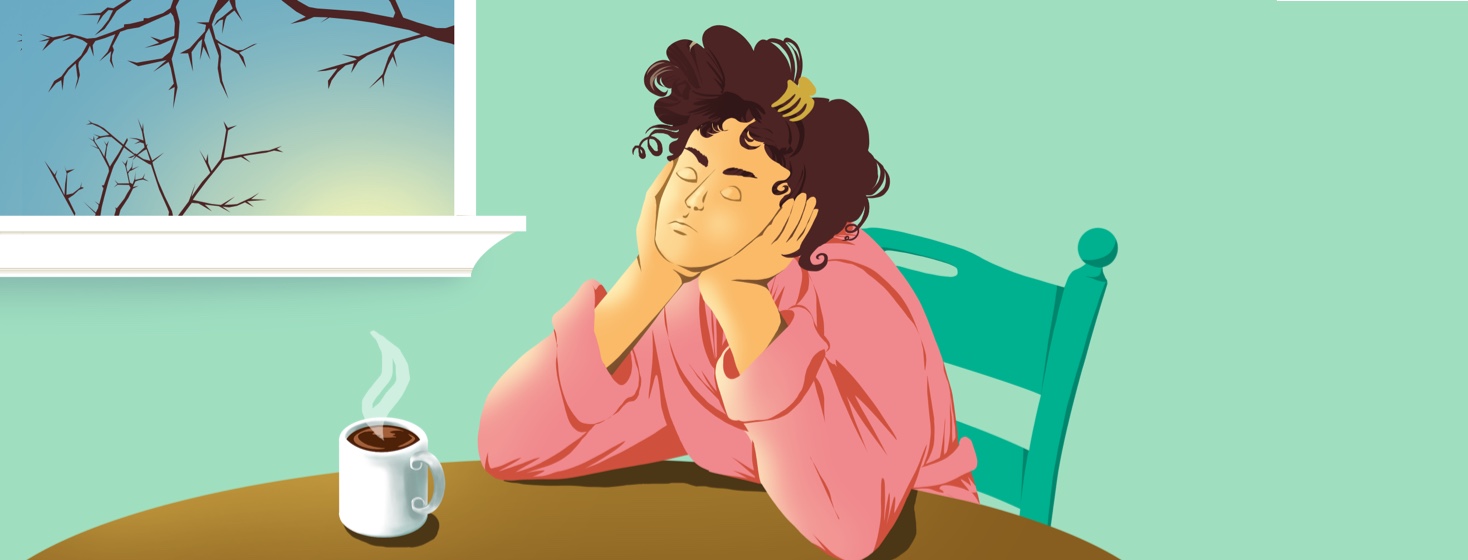Early Waking Insomnia: Up With the Chorus and Rather Not Be?
Some people are night owls and some people are early birds. Everything from mammals to mosquitos and even rice has their own "switch on" and "switch off" times.1,2
These circadian clocks affect our wake and sleep cycles and most things in our bodies, including fat metabolism, blood pressure, and liver function. When it comes to sleep and insomnia, however, we are often very focused on what time we fall asleep (if we do!) and what time we wake up – which we don't usually want to do!3-5
Early morning wake insomnia
Early risers are very popular in social media entrepreneurship circles. Some suggest joining the 5 AM club to be more productive before the outside world gets moving. However, suppose you are depriving yourself by missing out on a sleep opportunity. You could be sleeping, but you joined the club. In that case, you might not want to be in the club. If you are waking early, and you aren't choosing to, you could just be a biological early bird, or you could have an early morning waking variety of insomnia.
It is crucial to seek professional guidance to confirm if early waking is a symptom of insomnia. A circadian rhythm issue could be the culprit, or some other medical problem could be wreaking havoc with your sleep.
CBT-I for the win
Depression is also very commonly associated with early waking, though it is a bit unclear if depression causes the early waking or if the relationship is the other way around.5
Luckily, one of the most effective treatments for insomnia, CBT-I (cognitive behavioral therapy for insomnia), has also been found to be helpful with other depression symptoms. Learning to relate to our difficulties differently does seem to improve a person's quality of life and improve other symptoms.6
When I am working with a client with an early morning waking variety of insomnia, we review several angles:
- Could glucose management be a problem? For example, is the person waking because they are having a rush of cortisol (which helps increase glucose availability)?
- Are there anxieties about the day ahead? Is there any anticipation or excitement about work or hobbies? (Arousal is not always a negative feeling!)
- Is this a general "high arousal" issue for them?
The hype in hyperarousal
Hyperarousal almost always becomes a factor as people get more stressed and upset about waking early. This can affect all aspects of sleep. However, the impact is quite different with early morning wakings.
Hyperarousal is very common, and early mornings are a prime time for it to show its face, since other elements of sleep, like our sleep pressure, cannot help us as much as earlier in the night. By the time we reach the early morning hours of a sleep period, we will have (if we are lucky!) used up a chunk of our sleep ability, making returning to sleep after a normal waking much less likely if hyperarousal is present.
Even if there is a lot of sleep pressure there, it will not always win over hyperarousal. If you have ever stayed up really late to make yourself even more sleepy – only to continue to wake up at an early hour – you have experienced this power first hand!
An alternative approach to early waking insomnia
This is where I differ from some sleep therapists. This is not always applicable to everyone of course – everyone is different. I do not often suggest people get up and start their day or use the time wisely. I usually encourage people to begin slowly and calmly, with dim light, so as not to "train the brain" that early morning is the time to get started and wake up.
We emphasize gentle, arousal-lowering practices for the pre-alarm hour. Then, when the day has to really start, flick on the lights, get moving, get some food, and begin the day. Other interventions get layered on top after this skill is built, helping bring people better overall sleep and better satisfaction with the sleep they do get.

Join the conversation